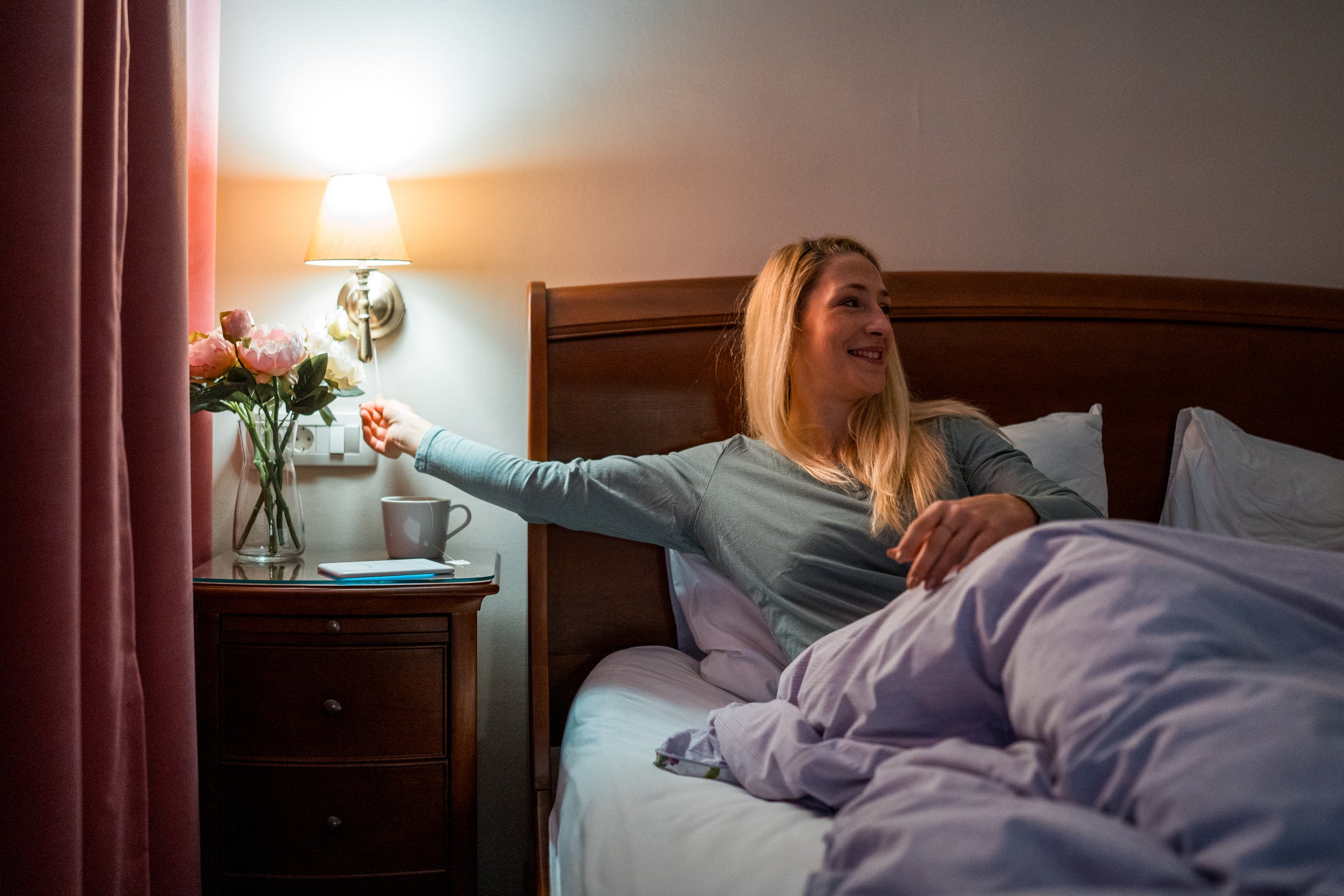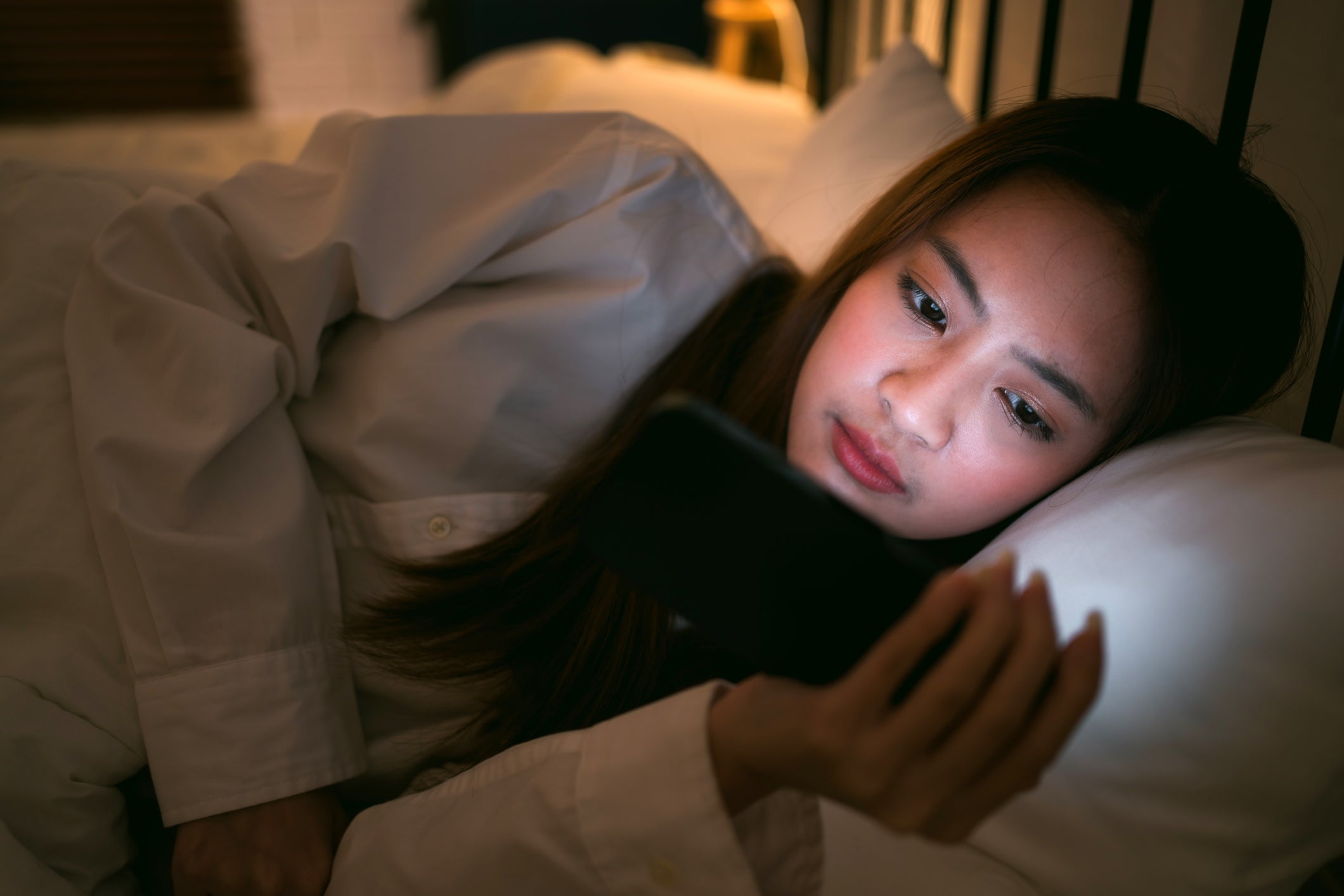There are few things as good as sliding into bed at night with time to spare. I know this firsthand, following years without the recommended seven hours of sleep a night.
Doctors say adults need at least that much to stay healthy and keep their cognitive abilities sharp — but more than a third of Americans just aren’t getting enough.
Even just an hour more can have a massive impact on your health — from lowering blood pressure to strengthening the immune system in the long run.
“A relatively minor commitment to get a little more sleep can make a real impact on improving your health,” said Anne-Marie Chang, an assistant professor at Penn State University.
Figuring it was worth a shot, I decided I would go to bed 30 minutes early every night for a week.

I was sure it had to help in some way. After all, I only get about six hours of a sleep each night, as do 40 percent of Americans.
That’s the average amount for New Yorkers like me, according to sleep-tech firm Simba, as people in urban environments have to deal with increased levels of noise and light pollution that can keep them awake.
But, sleeping for under seven hours has been shown to harm your mental and physical health, leading an increased risk of chronic disease, anxiety and depression, trouble focusing and an increased risk of accidents.
With that in mind, instead of getting into bed at 10:30 p.m. every night, I made it 10 p.m. sharp. I ate dinner shortly after 7 p.m., instead of 8 p.m. I also made sure to shower earlier and plug in any devices, if need be.
I turned off the overhead lights before getting into bed. Then, I set my alarm for the morning on my alarm clock. I made sure not to look at my phone. If I was still mentally awake, I briefly read a book instead of doomscrolling.
Come morning, I don’t know if I felt quite as chipper as I had hoped. I wasn’t groggy or sluggish, but I wasn’t exactly thrilled to leave my bed. I definitely did need a large cup of coffee, as I normally do to become “normal.”
But, I did feel as if my cognitive performance had improved at work, on the phone, and while riding the subway. I was able to think things out more and write clearly. I could respond to my parents quicker and with intention. And, I acted decisively when moving around and off the train.
And there’s not a lot to lose from heading to dreamland earlier. What do you really lose by going to bed 30 minutes earlier?
I found that the transition wasn’t hard. Although, you should note that I am a single, 32-year-old woman without roommates. Others may have additional hurdles to jump on the way to sweet REM sleep, like children or spouses.

If you want to try this and, to quote my father, “put some more sleep in your sleep bank,” experts say there are several ways to make it easier.
Being consistent with when you go to sleep and when you wake up is a start. Set a time that you will remember every day. So is limiting when you drink alcohol and coffee and work out. These all have a stimulating effect, and can be counterproductive.
Doing any of that too late can keep you awake and thinking about that embarrassing moment 15 years ago.
Screens are some of biggest sleep-stoppers, too. Bright screens stimulate the part of the brain that is designed to keep us awake, according to Sutter Health.
“I think if you were to actually put [people who sleep six hours a night] to the test and look at how they’re functioning during the day cognitively, you would definitely find deficits,” Dr. Andrew Varga, a neuroscientist and physician at the Mount Sinai Integrative Sleep Center, told TODAY.com.
So do any digital activities on those screens, Dr. Lauren Hartstein, an assistant professor at the University of Arizona, told The New York Times.
While you can switch the device off, “you can’t turn your brain off,” she warned.





0 Comments